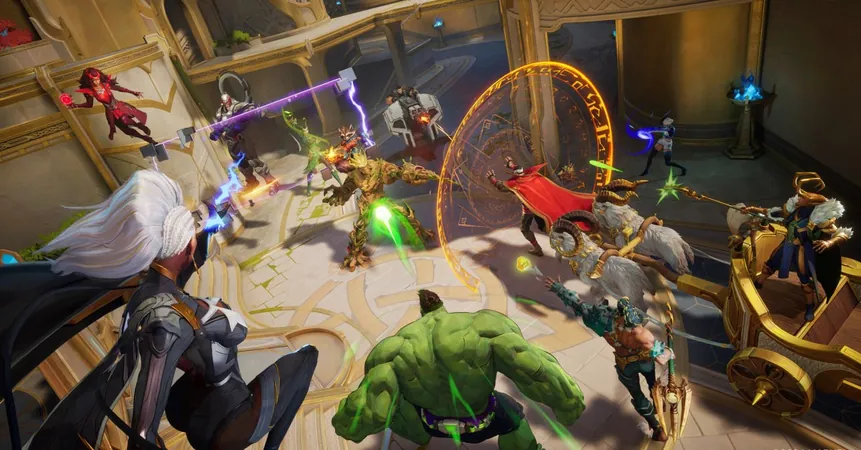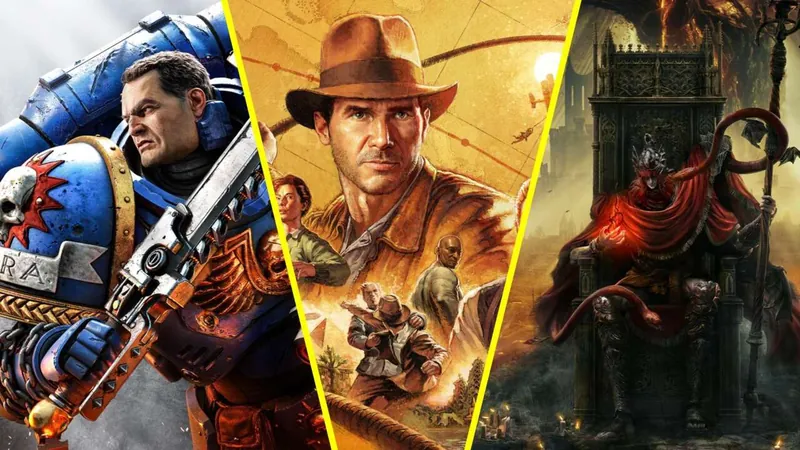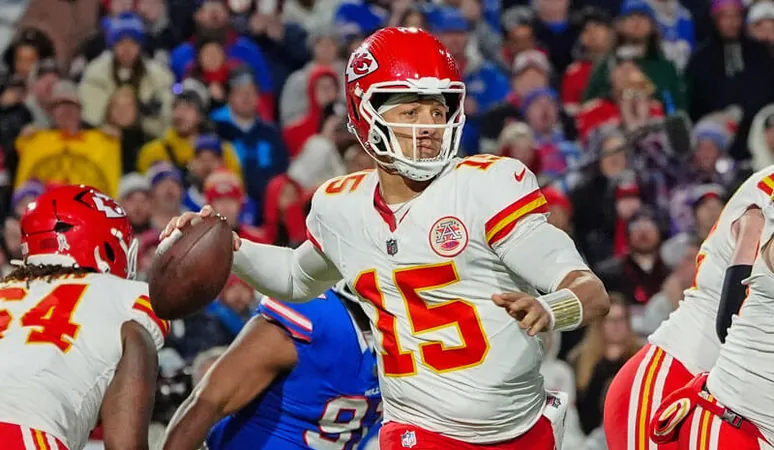
The Ongoing Battle Over Role Queue in Marvel Rivals: Will History Repeat Itself?
2024-12-23
Author: Michael
In the ever-evolving landscape of hero shooters, it’s impossible to discuss Marvel Rivals without casting a glance at Overwatch. The shared DNA between these two dynamic games is undeniable, with Marvel Rivals now carving out its own niche and attracting a vibrant fan base. Yet, old debates reminiscent of Overwatch’s early days are bubbling up anew, particularly the contentious issue of role queuing. Could this time be different?
At the heart of the matter are the three distinct roles featured in Marvel Rivals: high-damage Duelists, defensive Vanguards, and supportive Strategists. However, a frustrating recurring theme arises: players often rush to select Duelists, leaving Vanguards and Strategists behind. The stark lack of interest in these roles seems to stem from the thrill of racking up kills, which is less achievable for tanks and healers, leading to imbalance within teams.
Veterans of Overwatch’s early days will find this scenario all too familiar. In 2016, players often ended up reluctantly filling in roles like tank or support—much to their dismay—while others hogged the spotlight with fan-favorites like Hanzo and Widowmaker. I recall the countless times I persevered as Mercy, just hoping to take flight as Pharah in the next match, only to see my dreams dashed by teammates oblivious to the imbalance.
In response to this dilemma, Overwatch introduced a role queue in 2019. This system ensured each team had a designated number of tanks, healers, and damage characters, and offered rewards for players willing to step into the less popular roles. Blizzard invested heavily in balance through various adjustments to ensure characters were aligned with the game's structure, even transforming it from a 6v6 format to a sleeker 5v5 with Overwatch 2.
Unlike its predecessor, Marvel Rivals currently lacks a role queue system and doesn't adhere to the same stringent balancing standards. Characters such as the formidable Jeff the Land Shark can seamlessly combine healing with overpowering abilities, like swallowing enemies whole and tossing them off the map. This leads to a riskier, yet more flexible gameplay environment, allowing teams to effectively deploy Strategists or build a heavy Vanguard front line without the confines of a rigid structure.
While Marvel Rivals leans toward a more relaxed gameplay style, it’s important to reflect on the history that brought Overwatch to implement role queue. One key factor was the infamous GOATS meta, notorious for its three tanks and three healers composition, which dominated the competitive scene and quickly led to frustration and boredom among players.
Nonetheless, Marvel Rivals thrives outside the competitive atmosphere that governs many hero shooters today. Many fans appreciate the game precisely because it encourages a more adventurous and chaotic approach—player skill paired with unique character abilities can lead to unorthodox strategies that defy traditional norms. Those seeking an intense competitive experience may well choose established esports titles instead.
As discussion of whether to introduce a role queue continues to generate buzz in the Marvel Rivals community, it’s noteworthy that the developers at NetEase have stated there are currently no plans to adopt such a system. This could be a golden opportunity for Marvel Rivals to deviate from the well-trodden path of Overwatch, embracing its distinctiveness. Until we find a way to persuade those die-hard Duelist fans to flex their skills into tanking or healing, the debate is likely to extrude indefinitely across fan forums and social media platforms, igniting passionate discussions and echoing the lessons learned from the past.
Are the developers brave enough to stay true to their unique vision, or will they ultimately yield to the pressure for a role queue? Only time will tell!









 Brasil (PT)
Brasil (PT)
 Canada (EN)
Canada (EN)
 Chile (ES)
Chile (ES)
 España (ES)
España (ES)
 France (FR)
France (FR)
 Hong Kong (EN)
Hong Kong (EN)
 Italia (IT)
Italia (IT)
 日本 (JA)
日本 (JA)
 Magyarország (HU)
Magyarország (HU)
 Norge (NO)
Norge (NO)
 Polska (PL)
Polska (PL)
 Schweiz (DE)
Schweiz (DE)
 Singapore (EN)
Singapore (EN)
 Sverige (SV)
Sverige (SV)
 Suomi (FI)
Suomi (FI)
 Türkiye (TR)
Türkiye (TR)